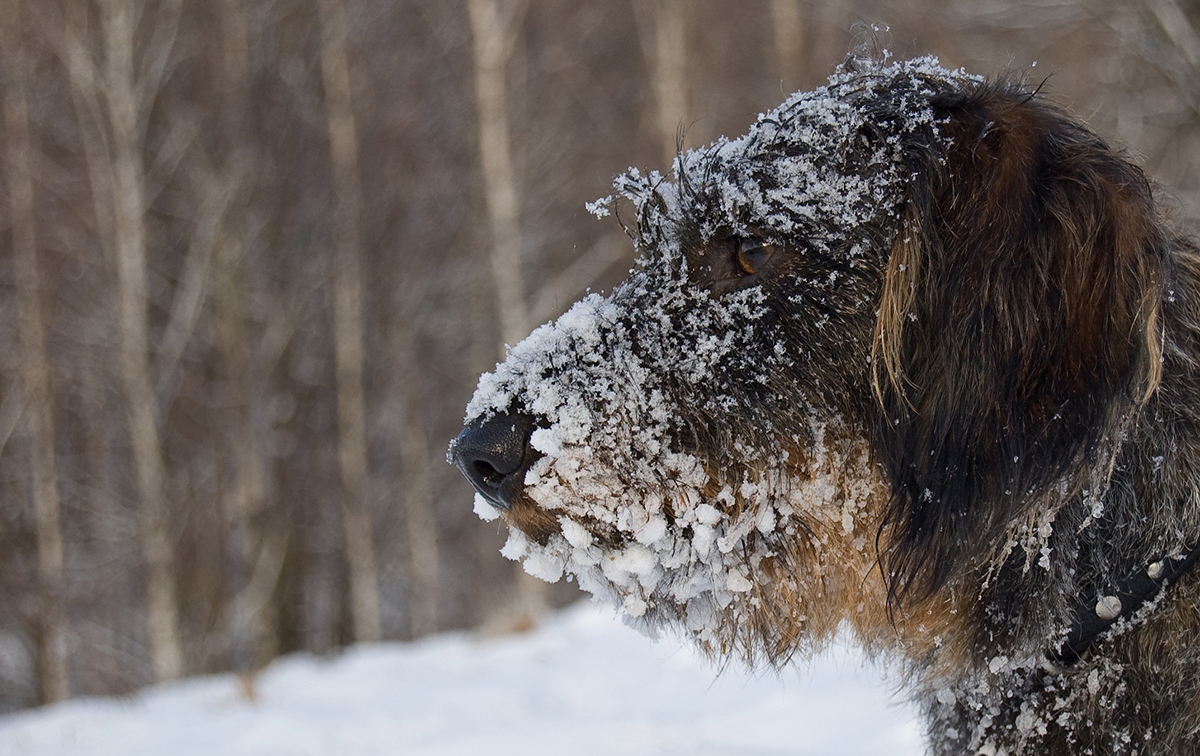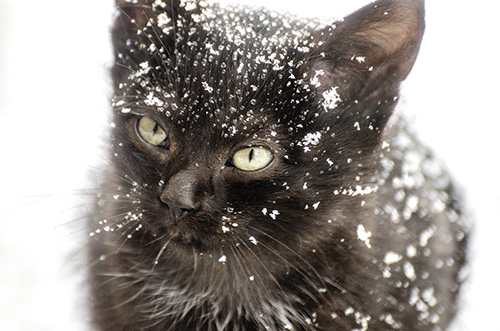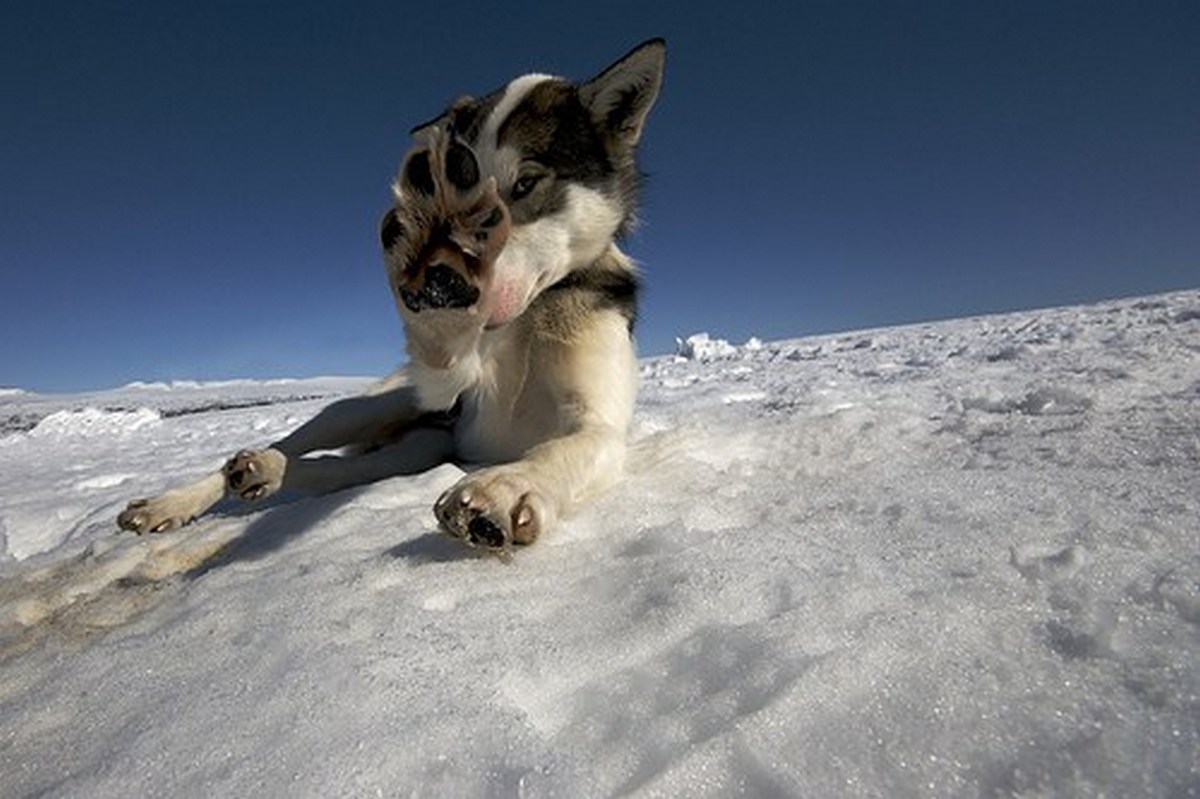Brrr… It’s that time of the year again, Rochester. Temperatures are dropping and the snow is falling. The winter season is not without its challenges. From chapped paws to dangerously low temperatures, our four legged friends need our help to stay comfortable and safe through the winter months. Here are some helpful hints to keep your pets and other furry friends safe in the cold weather.
- Just like people, your pet may start suffering from itchy, dry skin during the winter months. Repeatedly coming out of the cold and into dry heat, can really do a number on their skin. Keep your home humidified and towel dry pets as soon as they come in.
- Some pets love the snow! It can be hard to keep them out of it. But a good rule of thumb is that if it’s too cold for you, it’s probably too cold for your pets. Pets, despite their fur coats, can be just as susceptible to frostbite and hypothermia. Even dogs, more tolerant of cold weather, should not be left outside for long periods in below-freezing temperatures.

- Never leave your pet in the car. You probably know that leaving your pet in the car during the summer months can be dangerous, but did you know the winter can be just as risky. Your car can act like a refrigerator and temperatures inside can quickly drop. Keep pets safe by leaving them at home, where it is warm, while you run errands.
- Are you caring for community cats? Make sure you provide them with the food and shelter they need to survive the winter months. Cats need more food and water since they spend a lot of extra energy keeping themselves warm. You can also make them some cool shelters to help them get out from the cold. Check out this video tutorial.

- You want your pet to look their best for the holidays, but now is not the time for any big haircuts, and never shave your dog down to the skin during winter. Your pet’s long coat provides them with warmth. If your pet is long-haired, keep them trim to minimize ice balls and don’t neglect hair between their toes. If your pet has short hair and seems sensitive to the cold, consider a coat or sweater to keep them warm. Also, try and keep the number of baths to a minimum. Bathing your pets too regularly in the winter can lead to dry, flaky skin.
- Check under the hood. Community cats looking for a warm place to nap may curl up in wheel wells or even under the hood. You can save a cat’s life by taking the time to bang loudly on the hood or honk your horn before turning on the engine.
- Paw safety is particularly important during the winter. During walks, dogs can pick up all kinds of toxic chemicals—salt, antifreeze, or de-icers. If they are licking their paws to get the snow off, they may also be ingesting these dangerous toxins. Wiping off your dog’s paws when they come in can help prevent them from getting sick. Remember to also check for signs of injury, such as cracked or bleeding paw pads.

- Give your pet shelter. Bring in pets, even those who live primarily outdoors, inside during sub-zero temperatures. Also make sure they have a dry, draft-free shelter that is large enough that they can law down comfortably, but small enough so they can conserve body heat, if your pet spends a lot of time outdoors. The floor should be raised a few inches off the ground and covered in cedar shavings or straw. Pets spending a lot of time outside should get more food to replace calories lost trying to stay warm. Lastly, make sure your pet has a plastic food and water dish. In freezing temperatures, their tongue can stick to metal dishes. If you see a pet without adequate shelter or you feel is in danger from being left outside, give our Humane Law Enforcement Department a call at 585-223-6500 to report suspected animal cruelty.
Vice President for Humane Law Enforcement Reno Di Domenico shows that not all dog houses provide adequate protection from freezing temperatures.
- Make your pet part of your preparedness plan. Winter weather can bring all sorts of misery including power outages. Make sure your pet is part of your family’s emergency plan. Keep enough food, water, and medication to last your pet at least five days. Learn more about keeping your pet safe during an outage. You’ll be thankful you planned ahead.
- Pets can become lost during the winter because the snow and ice hide recognizable scents that may have helped them find their way home. Make sure your pet is fitted with a collar with up-to-date identification and contact information. A microchip can also be critical to identifying your pet and helping them be reunited with you if they are found and brought to a shelter. Check out these tips for more information about what to do if you lose or find a pet.



